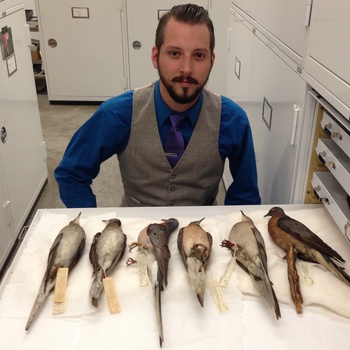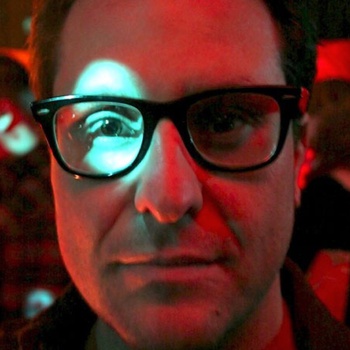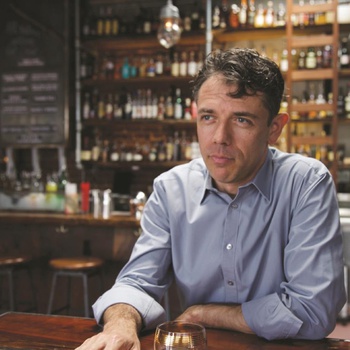The Web In An Eye Blink
Jason Scott

February 24, 02015
Jason Scott is an activist archiver who preserves artifacts of digital culture for the future. Users today have many ways to create content online, but they often lack the skills, tools or guidance to preserve the media they make. As startups fail, platforms disappear, and technology companies take the short term view, Jason and his cohorts at the Internet Archive and Archive Team are being good ancestors for everyone in the future networked world.
In 02009 Jason founded the Archive Team: a loose collective that launches “Distributed Preservation of Service Attacks" to rescue content endangered by "shutdowns, shutoffs, mergers, and plain old deletions" that happen all too often in the tech industry. They've saved user-created content on Friendster, GeoCities, and Google Reader before they went to the virtual graveyard.
Since 02011 Jason has been Free-Range Archivist & Software Curator at the Internet Archive. He is tasked with adding to and maintaining the largest vintage and historical software library in the world. It contains millions of programs from Shareware CD-Roms to open source software and vintage arcade games. Under Jason's direction, archive.org has now made hundreds of games playable in the browser--including those created for now-defunct operating systems, proprietary hardware, and arcade cabinets thanks to the modern miracle of emulation.
A filmmaker, historian, and self-proclaimed rogue archivist, Jason Scott discusses his personal history of preserving the digital commons which began with rescuing his favorite BBS-era "text files" and continued with saving gigabytes of the first user-created homepages (i.e. GeoCities.com) which were about to be trashed by their corporate owner. Today his mission, in his role at the Internet Archive, is to save all the computer games and make them playable again inside modern web browsers. And that's where things get really weird. From February 02015.
Upcoming Talks
Videos

Johanna Hoffman
Speculative Futures: Design Approaches to Foster Resilience and Co-create the Cities We Need
October 12, 02022

Creon Levit
Space Debris and The Kessler Syndrome: A Possible Future Trapped on Earth
April 26, 02022

Brittany Cox
Horological Heritage: Generating bird song, magic, and music through mechanism
August 20, 02019

Elizabeth Lonsdorf
Growing Up Ape: The Long-term Science of Studying Our Closest Living Relatives
April 30, 02019

James Holland Jones
The Science of Climate Fiction: Can Stories Lead to Social Action?
January 29, 02019

Kevin Kelly, Stewart Brand, Alexander Rose
Siberia: A Journey to the Mammoth Steppe
January 22, 02019

Caroline Winterer
The Art and Science of Deep Time:
Conceiving the Inconceivable in the 19th Century
September 4, 02018

Esther Dyson
The Short Now: What Addiction, Day Trading, and Most of Society’s Ills Have in Common
July 17, 02018

Hannu Rajaniemi
The Spirit Singularity: Science and the Afterlife at the Turn of the 20th Century
July 10, 02018

Shahzeen Attari
Facts, Feelings and Stories: How to Motivate Action on Climate Change
June 26, 02018

Renée DiResta
Disinformation Technology: How Online Propaganda Campaigns Are Influencing Us
April 10, 02018

Scott Kildall
Art Thinking + Technology: A Personal Journey of Expanding Space and Time
August 15, 02017

Miles Traer
The Geological Reveal: How the Rock Record Shows Our Relationship to the Natural World
June 27, 02017

Andrew Lakoff
How We Became “Unprepared”:
Imagining Catastrophe from the Cold War to Bird Flu
May 30, 02017

Jennifer Petersen
Why Freedom of Speech Is More Than Speech:
Expressions in Media and Code
April 18, 02017

Tara Behrend
The Psychology of Surveillance:
How Being Watched Changes Our Behavior
February 28, 02017

Ben Novak
The Next Flight of the Passenger Pigeon: Engineering Nature's Engineers
September 27, 02016









































































